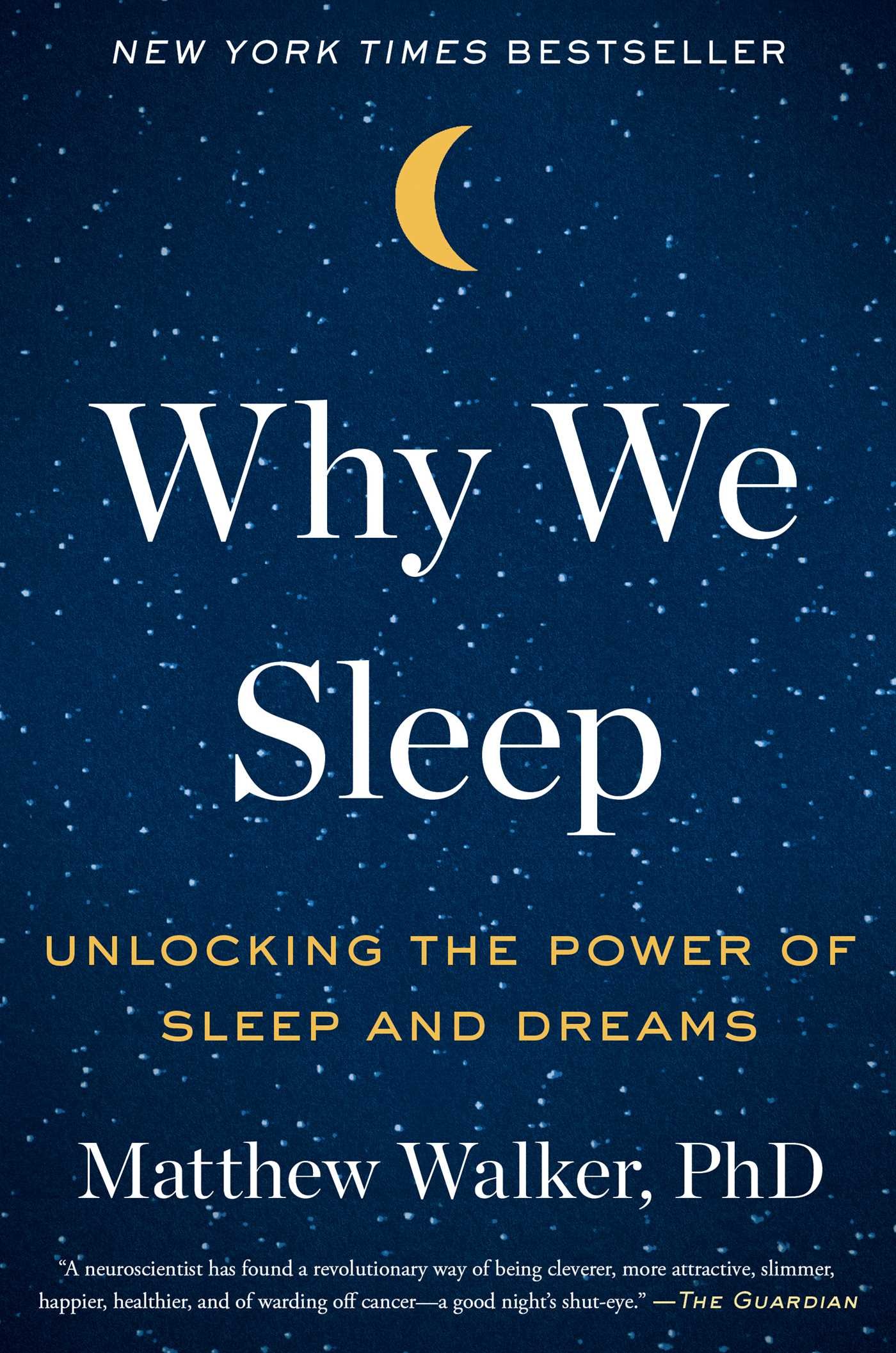Over the years I prided myself in being able to thrive on very little sleep. As the evidence provided by Matthew Walker in Why We Sleep shows this was misguided. Not sleeping enough conclusively leads to and contributes to many ails including cancer, heart disease and dementia. It also dramatically shortens your life. In other words, the saying “I’ll sleep when I’m dead” could not be further from the truth as not sleeping enough will undoubtedly lead to an earlier death.
On top of that being under slept significantly reduces mental acuity, willpower, creativity and new memory formation. Also, while there are differences in circadian cycles between night owls and early birds, it’s not enough to just get the recommended 8 hours of sleep, you also need to go to sleep at the right time to get the proper amounts of both NREM and REM sleep. Going to bed at 2 am instead of 11 pm for instance essentially eliminated deep NREM sleep in most people.
The book shed light on many other facts I was not aware of:
- Decaffeinated is not the same as caffeine free and has 3% to 30% of the caffeine of fully caffeinated drinks
- The half life of caffeine is 6 hours, meaning that if you drink a coffee at 4 pm, at 10 pm you still have 50% of the caffeine in your system
- Alcohol makes you sleepy, but severely impacts sleep quality, leading the author tongue in cheek to recommend that if you must drink, you should do so first thing in the morning
- Sleeping pills, while they make you sleep, prevent you from reaching high quality sleep and should be avoided at all cost
- Your body cools down at night which is why our minds have a Pavlovian response and become sleepier when we get colder
- A hot bath before bed will increase the cooling rate of your body which is the reason it puts you to sleep
I’ve been a bad sleeper my entire life. It’s very hard for me to fall asleep and it takes very little to wake me up which means that for years I averaged less than 6 hours of sleep per night (as tracked by my Fitbit). I am also the least sexy sleeper alive with my face mask, ear plugs and mouth guard.
Post reading the book, I’ve made many changes to my sleep routine following the suggestions of the author:
- I try to go to bed at 11 pm every night
- I try to be in bed for 9 hours from 11 pm to 8 am targeting 8 hours of sleep (as we are awake at least one hour per night)
- I cool the room temperature from 75 degrees to 68 degrees at night
- I regularly take a hot bath before bed
- I put black tape on every single source of light in my bedroom and have blackout shades for the room to be pitch black
- I play white noise to cover outside noise
- I don’t have a TV in the bedroom to train my mind to associate the bed only with sleep and sex
- I blue shift my electronic devices after 9 pm
- I try to do a quick calming meditation right before bed
- I don’t consume caffeinated drinks post noon and decaf coffee post 2 pm
- I don’t consume any alcohol (which was not a big change as I did not consume alcohol before either)
With all those changes I am a better sleeper, though I rarely manage 7 hours of sleep per night. However, it’s a work in progress and an ongoing life goal. I recommend everyone adopts most of the elements in this routine to get the quality of sleep and rest they deserve to live a happy, healthy life.

